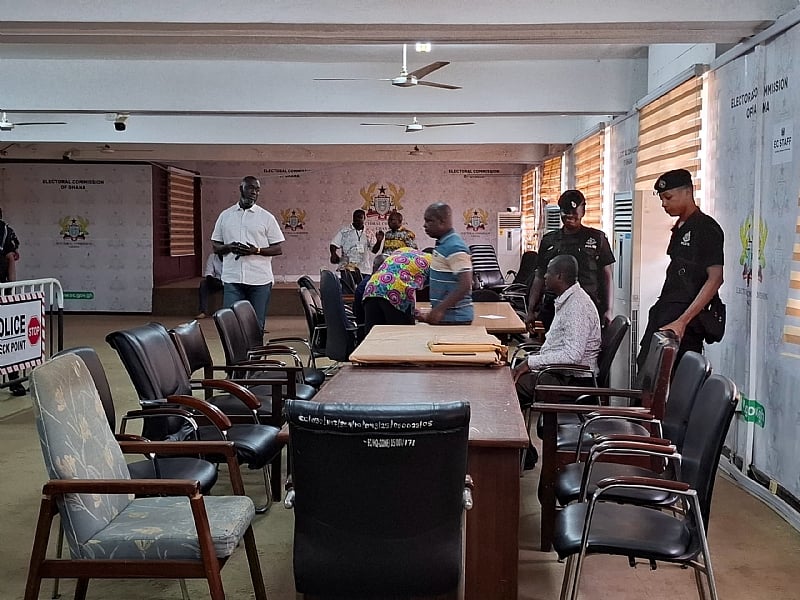The Electoral Commission (EC) of Ghana finds itself in the final stages of concluding the 2020 general elections, with the Ablekuma North Constituency results being the last piece of the electoral puzzle. The collation process, originally scheduled for completion alongside other constituencies, encountered an unexpected hurdle, leading to its suspension on Sunday. This suspension arose from discrepancies discovered regarding the scanned copies of results from approximately 20 polling stations within the constituency. To ensure the integrity and accuracy of the final declaration, the EC initiated a meticulous process to authenticate these contested results. This involved summoning the presiding officers from each of the affected polling stations to the Greater Accra Region Collation Centre, the central hub for compiling and verifying election results.
The atmosphere at the collation center is one of anticipation and meticulousness. Twelve of the twenty summoned presiding officers have arrived and are actively participating in the authentication process. Their presence is crucial as they possess firsthand knowledge of the proceedings at their respective polling stations. They are tasked with verifying the authenticity of the scanned copies by comparing them with their original records, including the signed pink sheets, which serve as the official documentation of the vote counts. This rigorous verification process is designed to eliminate any doubts or inconsistencies that might have arisen during the scanning and transmission of the results. The remaining eight presiding officers are yet to arrive, potentially causing further delays in the final declaration. The EC’s commitment to transparency and accuracy necessitates that every discrepancy is addressed and every piece of evidence is scrutinized before the final results are declared.
The delay in the Ablekuma North constituency declaration highlights the significance of accurate and transparent electoral processes. The EC’s decision to halt the collation and initiate a comprehensive authentication process underscores its commitment to upholding the integrity of the elections. While the delay may cause some anxiety among the candidates and the electorate, it ultimately reinforces public trust in the electoral system. The thoroughness of the verification process ensures that the declared results accurately reflect the votes cast by the constituents, thereby safeguarding the democratic principles of fairness and accountability.
The challenges faced in the Ablekuma North constituency underscore the intricacies of election management. The reliance on technology, while undoubtedly beneficial in expediting the collation process, also introduces potential vulnerabilities. The discrepancies encountered with the scanned copies highlight the importance of maintaining robust manual record-keeping systems as a backup and verification mechanism. Furthermore, the summoning of presiding officers emphasizes the critical role they play in ensuring the integrity of the electoral process. Their presence and active participation in the authentication process provide an indispensable layer of verification and accountability.
The EC’s actions also highlight the importance of robust training for electoral officials. Presiding officers are the front-line guardians of the electoral process, and their ability to manage polling stations effectively and maintain accurate records is paramount. Adequate training and support for these officials are crucial investments in ensuring the smooth and credible conduct of elections. Additionally, investing in secure and reliable technology for transmitting and storing election results is essential for minimizing the risk of errors and discrepancies. These investments not only enhance the efficiency of the electoral process but also contribute to bolstering public confidence in the outcome.
The Ablekuma North constituency situation serves as a valuable learning experience for the EC and other electoral management bodies. It underscores the need for continuous improvement in electoral processes, including refining procedures for handling and verifying electronic results. The implementation of clear guidelines and protocols for addressing discrepancies, as well as the establishment of robust audit trails, can further enhance the transparency and integrity of future elections. The EC’s commitment to transparency and accuracy in the Ablekuma North collation demonstrates its dedication to upholding the principles of democratic governance. While the delay is regrettable, the meticulous approach taken by the EC ultimately strengthens public trust in the electoral process. This incident serves as a reminder of the ongoing need for investment and vigilance in ensuring free, fair, and credible elections.


